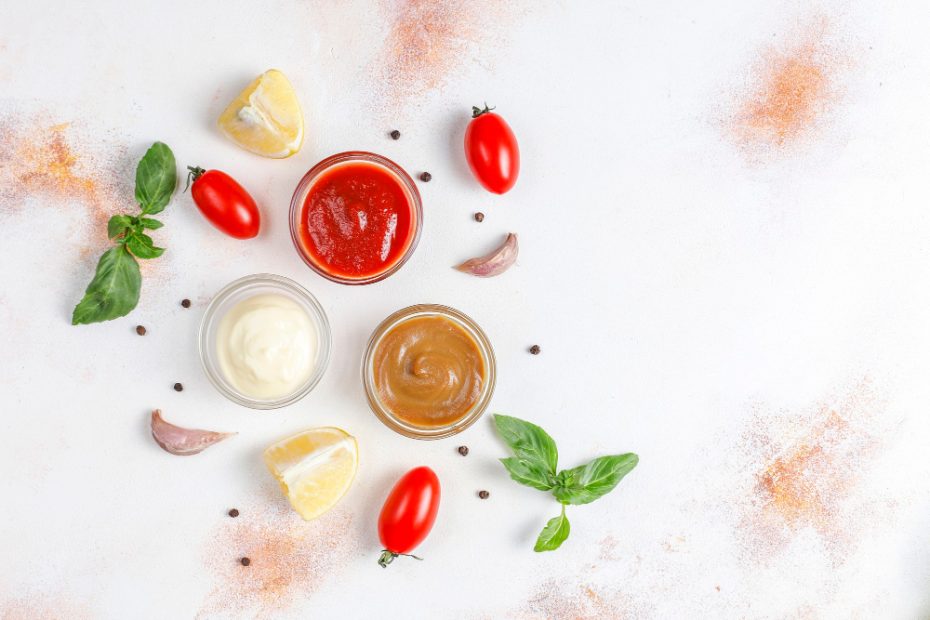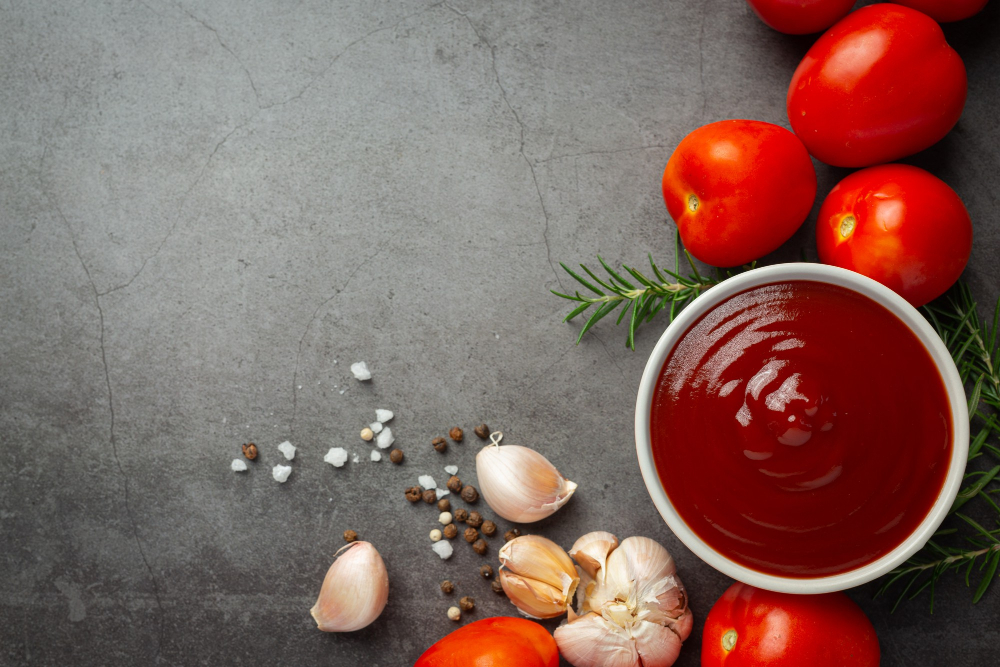How does acid affect a marinade?
A marinade is a seasoned liquid mixture used to enhance the flavor and tenderness of meat, poultry, seafood, or vegetables. Acidic ingredients, such as vinegar, citrus juice, or wine, are commonly added to marinades for their unique effects on the food being marinated.
The role of acid in marinades
The main role of acid in a marinade is to tenderize the meat and enhance its flavor. When meat is exposed to acid, it breaks down the connective tissues, making it more tender and easier to chew. The acid also helps to infuse the meat with the flavors of other ingredients in the marinade, resulting in a more flavorful and succulent dish.
Acidic marinades work particularly well for tougher cuts of meat that require longer cooking times, such as roasts or stewing cuts. By marinating these cuts in an acidic liquid before cooking, you can help break down the tough fibers and make the meat more tender and enjoyable.
The science behind acid’s effect on meat
Acid denatures or unwinds the proteins in meat, which leads to the breakdown of collagen, the tough connective tissue that holds the muscle fibers together. This process is similar to how acids like lemon juice or vinegar “cook” raw fish when making ceviche.
In fact, the acid in a marinade can partially cook the surface of foods, similar to the way that ceviche is “cooked” by the acid from citrus fruits.
The acidity of the marinade also affects the texture of the meat. An overly acidic marinade can cause the meat to become mushy or mealy, so it’s important to find the right balance. Different types of acid have different levels of acidity, so it’s important to choose the right one for your desired result.
Choosing the right acid for your marinade
There are several common acidic ingredients you can use in marinades, each offering its own unique flavor profile. Some popular options include:
- Vinegar: a versatile and readily available option that adds tanginess to marinades.
- Citrus juice: lemon, lime, or orange juice can bring a refreshing and bright flavor to your marinade.
- Wine: red or white wine can add depth and complexity to your marinade, depending on your preference.
It’s important to note that different acids may require different marinating times. A highly acidic marinade, such as one made with straight vinegar or citrus juice, can start breaking down the surface of the meat within minutes. On the other hand, a less acidic marinade, like one made with wine, may require several hours or overnight to achieve the desired effect.
Tips for marinating with acid
Here are some important tips to keep in mind when using acidic marinades:
- Always marinate in a non-reactive container, such as glass or stainless steel, to avoid any undesirable flavors caused by a reaction between the acid and the container.
- Don’t marinate for too long. While acid can tenderize meat, leaving it in an acidic marinade for too long can result in an unpleasant texture. Follow the recommended marinating times for the specific type of meat you are using.
- Balance the acidity. If your marinade is too acidic, you can balance it out with other ingredients like oil, sugar, or salt to mellow the flavor.
In conclusion, the acid in a marinade plays a crucial role in tenderizing the meat and enhancing its flavor. By understanding how different acids affect the texture and taste of the meat, you can create delicious and perfectly marinated dishes that will impress your family and guests.
Should Marinades Always Contain an Acid?
Marinades are a great way to infuse flavor into meat, fish, or vegetables before cooking. Traditionally, marinades contain an acid component, such as vinegar or citrus juice, which helps to tenderize the food and enhance its taste. However, there is some debate among chefs and food enthusiasts about whether marinades should always include an acid.
The Role of Acids in Marinades
Acids, like vinegar or lemon juice, play an important role in marinades. They help break down the connective tissues in meat, making it more tender and juicy. Additionally, acids can help enhance the flavors of other ingredients in the marinade, allowing them to penetrate the food more effectively.
However, it is not always necessary for marinades to contain an acid component. In fact, there are certain dishes and cooking techniques where omitting the acid can be beneficial.
Marinades Without Acids
There are some instances where using a marinade without an acid can be more suitable:
- Dry rubs: Dry rubs, consisting of dry spices and herbs, can be used as an alternative to marinades. These are typically used on larger cuts of meat, such as ribs or brisket, that require slow cooking. A dry rub forms a flavorful crust on the meat without the need for acid.
- Quick grilling: When time is limited, marinades with acids may not be as effective. In these cases, using a simple combination of herbs, spices, oils, and aromatics can still add flavor without the need for acid.
It is important to note that while acid-free marinades can still contribute flavor, they may not have the same tenderizing effect as those with acids.
“Experimenting with different marinade recipes and techniques can lead to exciting and delicious results in the kitchen.”
What type of vinegar is best for marinades?
When it comes to creating delicious and flavorful marinades, the choice of vinegar can make a significant difference. Vinegar not only adds tanginess but also helps to tenderize meat and infuse it with flavor. Let’s explore some of the most popular types of vinegar used in marinades and discover which one might be best for your next culinary adventure.
1. Balsamic Vinegar
Balsamic vinegar, known for its rich, sweet flavor, is an excellent choice for marinades. It pairs well with red meats like beef and lamb, as well as fruits, making it a versatile option. The thickness of balsamic vinegar also helps create a perfect glaze when reduced, adding a glossy finish to your dishes.
2. Apple Cider Vinegar
Apple cider vinegar is a popular choice for marinades due to its mild and slightly fruity taste. It works well with poultry, pork, and vegetables. The natural sweetness of apple cider vinegar can help balance out spicy or savory flavors, creating a harmonious blend of tastes.
3. Red Wine Vinegar
Red wine vinegar offers a tangy and robust flavor that complements red meats, such as steak and game. Its acidity helps tenderize tougher cuts of meat, enhancing their texture. Red wine vinegar also works well in Mediterranean-style marinades, bringing out the flavors of herbs and spices.
4. Rice Vinegar
Rice vinegar, commonly used in Asian cuisines, brings a delicate and slightly sweet taste to marinades. It is ideal for seafood, chicken, and stir-fry dishes. Rice vinegar’s light and clean flavor allows other ingredients to shine while adding a hint of acidity.
5. White Wine Vinegar
White wine vinegar possesses a crisp and tangy flavor that works well in marinades for fish, chicken, and lighter meats. Its subtle taste enhances the natural flavors of ingredients without overpowering them. White wine vinegar can also be used as a base for herbal or citrus-infused marinades.
Tip: Experiment with different types of vinegar to find your preferred flavor profile. You can also combine various vinegars to create unique marinades tailored to your taste.
In summary, the best type of vinegar for marinades depends on the desired flavor and the type of meat or vegetables being marinated. Whether you opt for the sweet richness of balsamic vinegar or the tanginess of red wine vinegar, each type brings its own unique characteristics to your dishes. So, go ahead and get creative with your marinades to elevate your culinary creations!
Can Lemon Juice Replace Vinegar in a Marinade?
When it comes to marinating your favorite meats and vegetables, vinegar is often a go-to ingredient. However, if you find yourself out of vinegar or simply prefer the taste of lemon juice, you may be wondering if it can be used as a suitable substitute. While both lemon juice and vinegar have their own unique flavors and properties, they can be interchangeable in many marinade recipes.
The Acidity Comparison
Both lemon juice and vinegar are acidic ingredients that help tenderize meat and add flavor to dishes. Lemon juice has a slightly higher acidity level compared to most vinegar varieties, which can make it more effective in breaking down proteins and enhancing the flavor of your marinade.
Flavor Differences
While lemon juice may bring a refreshing citrus flavor to your marinades, vinegar offers a more tangy and sharp taste. Depending on your preference and the specific dish you’re preparing, one may be more suitable than the other. For example, lemon juice might pair well with seafood, while vinegar could complement red meat.
Substituting Lemon Juice for Vinegar
If you decide to use lemon juice instead of vinegar in a marinade, keep in mind a couple of things. First, remember that lemon juice has a stronger flavor, so you might want to use less of it than the amount of vinegar called for in the recipe. Second, consider adjusting the other ingredients in your marinade to balance the flavors accordingly.
“When substituting lemon juice for vinegar, start with a smaller amount and taste as you go. You can always add more, but it’s difficult to remove excess acidity once it’s been added.”
Recipes to Try
Here are two marinade recipes to experiment with, one featuring vinegar and the other using lemon juice:
Vinegar Marinade Recipe:
| Ingredients | Amount |
|---|---|
| Vinegar | 1/4 cup |
| Soy sauce | 2 tablespoons |
| Garlic | 2 cloves (minced) |
| Honey | 1 tablespoon |
Lemon Juice Marinade Recipe:
| Ingredients | Amount |
|---|---|
| Lemon juice | 2 tablespoons |
| Olive oil | 2 tablespoons |
| Herbs (such as thyme or parsley) | 1 tablespoon (chopped) |
| Salt and pepper | To taste |
Both recipes can be used to marinate chicken, fish, or vegetables.
In conclusion, lemon juice can indeed replace vinegar in a marinade. However, it’s important to consider the flavor profile you desire and make adjustments accordingly. With some experimentation and tasting, you can create delicious marinades using either ingredient.
What’s the right balance of acid to oil in a marinade?
Marinating is a fantastic way to enhance the flavor and tenderness of your meats, fish, and vegetables before cooking. A key factor in creating a delicious marinade is finding the right balance between acid and oil. The acid helps to tenderize the proteins while adding flavor, while the oil adds moisture and richness to the dish.
The importance of acid in a marinade
The acid in a marinade can come from various sources such as citrus juices (lemon, lime, or orange), vinegar (balsamic, red wine, or apple cider), or even yogurt. Its primary role is to break down tough muscle fibers and connective tissues in the meat, making it more tender and juicy.
Tip: For an easy and effective marinade, try combining equal parts lemon juice and olive oil with some minced garlic, salt, and pepper.
Finding the right oil for your marinade
The oil in a marinade serves multiple purposes. It helps to distribute the flavors throughout the ingredients, prevents them from drying out during the cooking process, and adds richness to the final dish. Olive oil, with its mild flavor, is a popular choice, but other oils like canola, avocado, or sesame oil can work well too.
Striking the perfect balance
When it comes to achieving the right balance of acid to oil in a marinade, it’s essential to consider the type of protein you’re marinating. Delicate proteins like fish and seafood require less acid and oil compared to tougher cuts of meat like beef or chicken. As a general guideline, aim for a ratio of 1 part acid to 3 parts oil.
Here’s a simple table highlighting recommended ratios for different proteins:
| Protein | Acid | Oil |
|---|---|---|
| Beef and Lamb | 1 part | 3 parts |
| Poultry | 1 part | 3 parts |
| Fish and Seafood | 1 part | 2 parts |
| Vegetables | 1 part | 2 parts |
Remember: Adjust these ratios according to your personal taste preferences and the intensity of flavors you desire.
In conclusion, finding the right balance of acid to oil in a marinade is crucial to achieve the perfect blend of tenderness and flavor. Experiment with different combinations and ratios to create marinades that suit your palate and complement the ingredients you are using.
Can too much acid make meat tough?
When it comes to cooking meat, achieving the perfect level of tenderness is essential. One common question that often arises is whether using too much acid can make meat tough. Let’s explore this topic and shed some light on the matter.
Understanding Acid in Cooking
Acidic ingredients such as citrus juices, vinegar, or wine can add a tangy flavor to dishes, but they also have the potential to tenderize meat. When meat is exposed to acid, the protein structures break down, resulting in a more tender texture. However, it’s crucial to strike the right balance, as excessive acid can have the opposite effect.
The Impact of Excessive Acid
If meat is marinated in highly acidic solutions for too long, the acid can start degrading not only the proteins but also the fibers that hold the meat together. This excessive breakdown can lead to a mushy and unappetizing texture. Therefore, it’s important to follow recommended marinating times and ratios to avoid overexposure to acid.
Guidelines for Using Acid in Meat Preparation
To ensure your meat remains tender and flavorful without becoming tough, here are some guidelines to consider:
- Choose the Right Acid: Opt for milder acids like lemon juice or yogurt instead of stronger ones like vinegar if you want to marinate meat for an extended period.
- Timing is Key: For most cuts of meat, marinating for 30 minutes to 24 hours is sufficient. Avoid leaving the meat in an acidic marinade for too long.
- Balance with Other Ingredients: Combine the acidic element with other components, such as oil, herbs, and spices, to create a well-rounded marinade that enhances both flavor and tenderness.
Using acids in moderation can yield succulent and tender meat, while excessive use may lead to toughness. Remember to strike the right balance and follow recommended guidelines for marinating times and ratios.
To summarize, while acid can be used to tenderize meat, too much of it can make the meat tough. It is essential to exercise caution when using acidic ingredients and follow recommended guidelines to maintain the desired tenderness and flavor in your dishes.
Conclusion
In summary, acids are a common ingredient in marinades as they help tenderize the food and enhance flavor. However, there are situations where using an acid-free marinade can be just as effective or even preferable. Whether you choose to include an acid in your marinade or not depends on the specific dish and cooking method. Experimenting with different marinade recipes and techniques can lead to exciting and delicious results in the kitchen.



